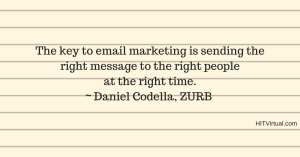 . . . But first, what do you know and understand about the future? The average person born in the latter years of the baby boom (1957–64) has held 11 jobs from age 18 years to 46, according to the U.S. Bureau of Labor Statistics. That trend indicates that in the future, the velocity at which people will change jobs is going to increase even further. That’s why it’s very important that the job interview focus on the future and not on the past.
. . . But first, what do you know and understand about the future? The average person born in the latter years of the baby boom (1957–64) has held 11 jobs from age 18 years to 46, according to the U.S. Bureau of Labor Statistics. That trend indicates that in the future, the velocity at which people will change jobs is going to increase even further. That’s why it’s very important that the job interview focus on the future and not on the past.
What do jobs of the future look like?
Even though more and more office tasks are being performed in teams, each team member is more like a free agent in a sport: while supporting a certain function for one team, the employee may be solicited to join another team and will be judged primarily by recent projects and accomplishments. No one is interested in what you did many years ago. Today’s environment of constant change forces employees and job seekers to be accountable for their own careers. And that new norm also forces them to constantly think out of the box and extend their personal goals.
Employers expect remarkably more from their employees than they did in the past. Many employers provide their employees with mobile computing devices such as laptops, tablets, and mobile phones; and they expect employees to conduct activities way beyond the normal, 9-to-5 workday. Work is constant, and one’s personal and professional boundaries alternate and overlap. Employees’ job descriptions, too, are fluid, and they change all the time based on employers’ immediate needs. Therefore, flexibility is essential. It’s an opportunity for employees to define themselves, and it hands employees the possibility to extend their goals—and thus their value—to the company. Employers are looking for people who are innovative and problem fixers.
Different from the past—when careers were linear—now and in the future, careers will more and more resemble mazes. In the new constellation, it’s important to be clear not only about what you know but also—and, possibly, more important—about whom you know and to make sure others know you. Hiding under a rock is not a good prescription for career growth and promotion.
In a future job interview either internally or externally, the recruiter will want to know about your professional results and measurable accomplishments. You need to constantly promote yourself. Don’t be embarrassed about tooting your own horn when it comes to communicating the hard skills you’ve acquired while working on various teams. Also exhibit your soft skills by demonstrating evidence that you can communicate with others to form relationships, that you know how to manage and prioritize tasks, and that you are adept at working on conflict resolution—with positive outcomes.
The future also requires that you demonstrate your online influence: Social media have become integral parts of who you are and the number of connections you have. You have to understand those social media tools and show your relevancy. Social media are here to stay, and those who are familiar with the phenomenon and participate in it and know how to exploit it for their own benefit will be the winners. More and more recruiters emphasize that EQ, or emotional quotient, is more important than the old IQ, or intelligence quotient.
Business & Finance Articles on Business 2 Community(23)






